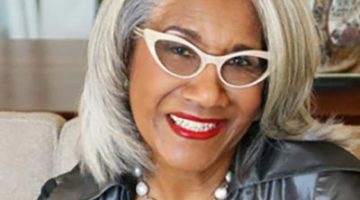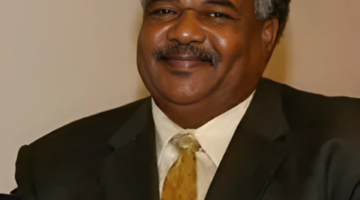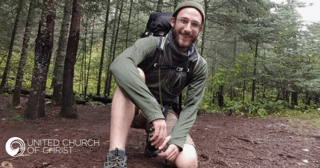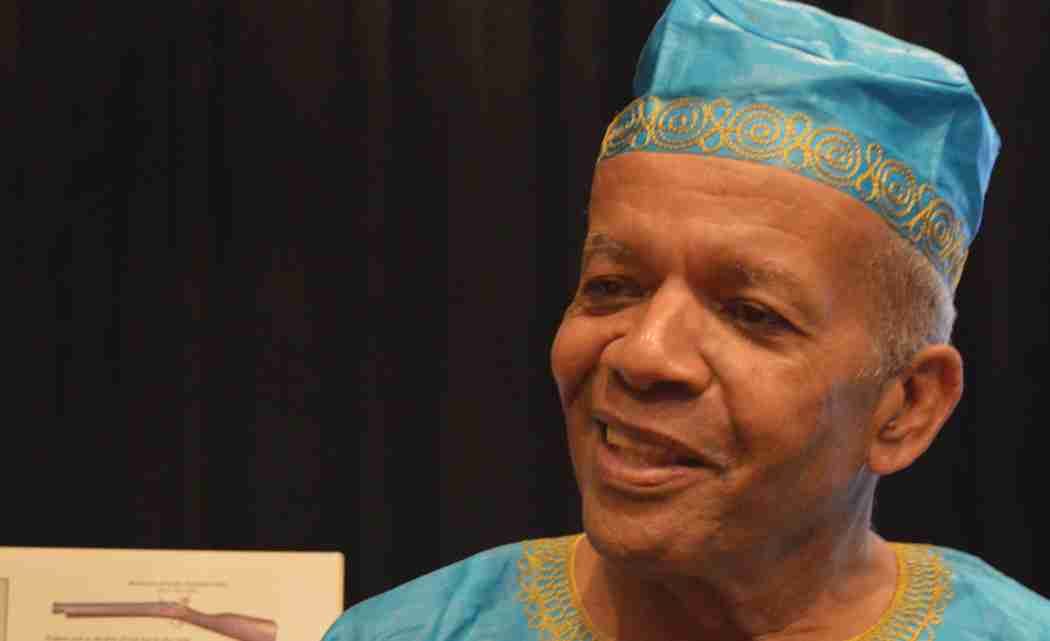Stereotypes have long been a fiber within America’s social fabric, but their stitching in the quilt of slavery and indentured servitude have their origins in the wide-range of epithets and misguided concepts referencing once enslaved black men, women and children like the myth that blacks can’t tread water. But even captured blacks thought to have idyllic super human strength were not always able to bear the atrocities the Trans-Atlantic slave trade would present them with aboard ships whose routes would charter a westerly course, said Miami native and African art curator Dinizulu Gene Tinnie.
The event, “The Depths of our Heritage,” took place on Apr. 23 at the African Heritage Cultural Arts Center in Liberty City; where dozens convened for a talk-back session with scuba diving legend and local elder statesman Ric Powell.
Powell, who, in the 1960s successfully mastered Basic Underwater Demolition training at the Naval Amphibious Base in Little Creek, Virginia and the Navy’s Underwater Swimmers’ School in Key West, and first learned to scuba dive at the Truman Annex Institute (formerly known as the Underwater Swimming School); also pursued another passion–music.
That passion led him to the campus of Howard University where a blossoming relationship with Marshall Watkins (percussionist) and musical prodigy Donny Hathaway (singer and pianist) flourished into the Ric Powell Trio.
Powell recalls performing on Miami Beach, where he and other blacks were not permitted to lodge. Instead, they stayed at the Sir John Hotel and the Hampton House in Overtown. Despite the restrictions regarding blacks on Miami Beach, it was a conversation with Hathaway overlooking the Atlantic that birthed his love for Miami.
Though he had a burgeoning musical career in Chicago, his heart was in another part of the nation. “I got a little lonely for the ocean–that beautiful ocean–it was so calm and so pretty [that] I told Donny that I had to eventually get back to Miami,” Powell mused.
His journey back to South Florida began when he received a master’s degree from the University of South Florida and later helped to draft the curriculum for the Inner-City Marine program (currently known as MAST Academy)—one of Miami-Dade County Public Schools premiere magnet programs.
A 1991 article in Ebony magazine by Dalton Narine, a Miami transplant from Trinidad, highlighted the significance of blacks’ emergence at sea; inspiring Powell and other divers from around the country to get together in January ’91 to form the National Association of Black Scuba Divers.
“That same year …while teaching at Norland Senior High, I got together with Charles Cherry and Milton Felton and we formed the South Florida Black Scuba Divers. Along with the Mel Fisher Maritime Museum, we were able to display some of the artifacts from the Henrietta Marie which ran aground in 1700,” Powell said.
He is particularly intrigued by the shackles that were used to anchor women and children to the ships’ floorboards among other “precious cargo.”
Tinnie explained that the Henrietta Marie is believed to be the largest repository of tangible artifacts from the early years of the slave trade discovered by Mel Fisher in 1972 some thirty-five miles west of Key West. “The Henrietta Marie traveled a triangular route likened by slavers–from England to the coasts of Africa, to the Caribbean, the Americas and, then home again. The French didn’t want to encounter the once powerful nation of Haiti for fear of retaliation against slavery.”
In 1993, the NASB placed a memorial plaque on the site of the Henrietta Marie. The marker faces eastward bearing the name of the slave ship and reads: “In memory and recognition of the courage, pain and suffering of enslaved African people. Speak her name and gently touch the souls of our ancestors.”
Powell scoffed at a comment made by former Los Angeles Dodgers’ Vice President Al Campanis during a 1987 Nightline interview with Ted Koppel when he asked, “Why aren’t blacks good swimmers? Because they lack buoyancy,” he answered.
Powell said, “It is the spirits of African people that keeps us afloat.”










No Comment